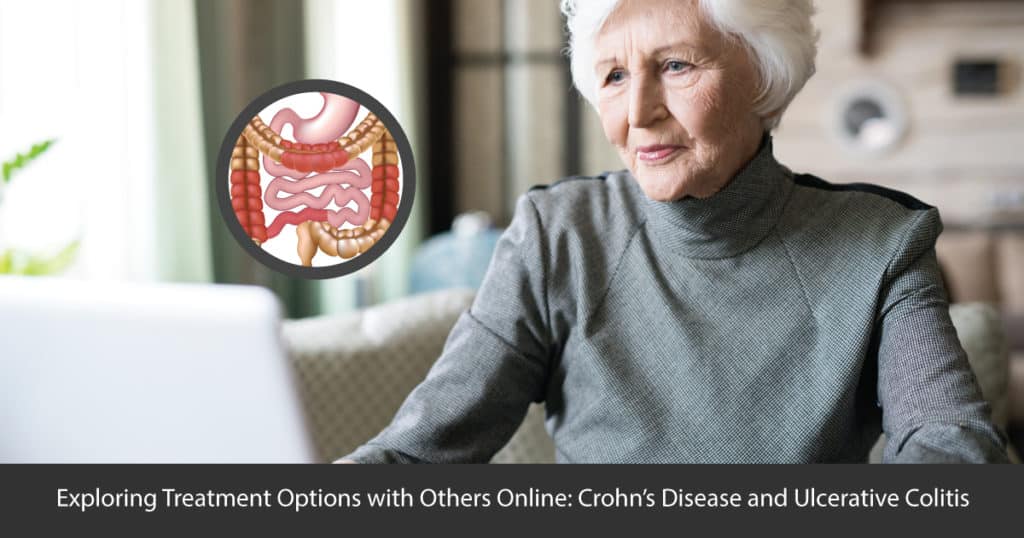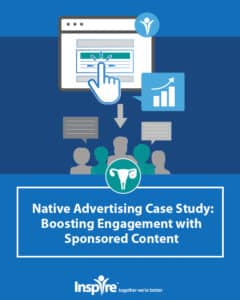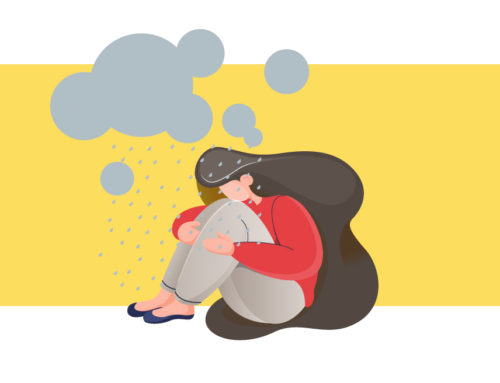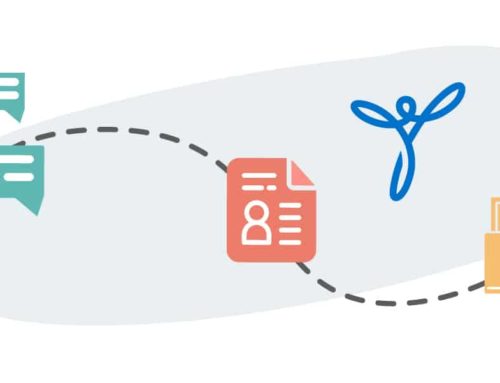Exploring Treatment Options with Others Online: Crohn’s Disease and Ulcerative Colitis

According to the CDC, in 2015, an estimated 1.3 percent of US adults (3 million) reported being diagnosed with irritable bowel diseases (IBD): either Crohn’s disease or ulcerative colitis.1 There are 70,000 new cases diagnosed every year.2 These immune-mediated diseases can cause destructive inflammation and can permanently harm the intestines. Symptoms can include diarrhea with fever, abdominal pain and cramping and fatigue among others.3 Every patient’s symptoms vary in type, severity, and frequency, so Inspire members go online to discuss their experiences with treatments that reduce these painful and socially isolating events.
For me medication has mattered much more than diet, but I do take a probiotic in addition to prescription drugs. I think exercise and stress management do help too.
Inspire has communities where thousands of patients who have IBD share their experiences with treatment. The Crohn’s and Ulcerative Colitis support community on Inspire has over 30,000 members, with almost 17,000 page views last year. The 50,000 users of the AGMD GI Motility Disorders support community on Inspire also discuss their experiences with Crohn’s and colitis, as do the 260,000 members of the Autoimmune Disease support community on Inspire.
Crohn’s disease can occur with other conditions. This member with ovarian cancer found others in the Ovarian Cancer Research Alliance support community on Inspire who had been diagnosed with Crohn’s disease.
I was newly diagnosed with Crohn’s disease which I’m experiencing right now as I type. I had my colon scoped Monday. I got very sick the day I came home from the hospital….I am wanting to know if any one else has experience Crohns disease along with there ovarian cancer and how they are handling the situation?
In reply,
I also have Crohn’s along with OVCA. I really understand how you are feeling right now. I found out I had Crohn’s 5 years ago and have been dealing with it ever since. I was diagnosed with Stage [classification] ovarian cancer last [month] and it did make the Crohn’s a lot worse. I had to stay in close touch with my GE along with my GYN/ONC… I am on [medication] injections and right now not having any problems
One new member of Inspire’s Crohn’s and Ulcerative Colitis support community described having a relative who was not only newly diagnosed with severe Crohn’s Disease, but isolated in the hospital by the COVID-19 pandemic. A member replied with reassuring words and experience about the availability of effective medications and surgery for treatment:
She is not alone. There are hundreds of thousands of people all over the world that live long happy and productive lives with crohns disease. They get married, have children and jobs. There are many medications out there now that can help. Also, if an ileostomy is eventually needed, it’s nothing to fear. It just takes a little getting used to a new normal. I had mine in 1969 and do whatever I want.
Treatment usually involves either drug therapy or surgery, and often includes a combination of therapies.4 IBD treatments can include biologics, a newer class of drugs based on naturally occurring molecules, including tumor necrosis factor (TNF)-alpha inhibitors.5 In a thread where members discussed their varying responses to biologics, when one member wrote, “I am wondering if anyone else has tried numerous biologics without any response,” others replied, helping the questioner put their experiences into context with peers, including this respondent:
I was on [one biologic] a for a year and it only helped some am now on [another biologic] was at 8 weeks now 6 weeks and then doubled my dose from 5mg to 10 it is now helping me have a normal life don’t get discouraged yet this was over another year of trial and error.
Other forms of treatment for IBD include antibiotics, supplements, nutritional support, and surgery. According to the Mayo Clinic, up to one-half of those diagnosed with Crohn’s disease will require surgery at some point to remove segments of diseased tissue or to repair damage.4
Some of the surgeries result in significant lifestyle changes, for which patients also need support. Membership in Inspire’s Ostomy support community tops 30,000. In a post titled, “I Hate This,” a member that said, “I have had Crohn’s since 2008… I now have an ileostomy, and I hate it. I hate everything about it,” received 90 responses providing suggestions and solidarity.
Members feel comfortable discussing their treatment. This member describes his involvement with the group focusing on why he feels comfortable and willing to share his experiences:
I am not one for social media, especially after deleting 2 of my social media accounts for permanently, but I do like this site here in Inspire, it’s a great source for information and of sharing about your experiences with Crohn’s and/or Colitis… I have a permanent stoma after having severe anemia and Ulcerative Colitis. I had a temporary stoma placed on at my colon removal Colectomy, but after they like toke that stoma down after about 2 months, my UC showed up in my newly built J Pouch. So they took out my J Pouch and placed on a permanent stoma… I have been around the block as they say more than once, so if any members in here have any questions about UC or Crohn’s or the surgeries, I am here to help!
Patients and caregivers feel safe sharing their treatment experiences with each other because Inspire provides a dedicated and anonymous place to discuss conditions that have stigmas associated with them. Knowing there are others who are facing the same challenges, they can then act on that treatment information by taking their questions to their healthcare providers.
Inspire offers a trusted community to patients and caregivers. Our goal with this blog, this website and our content is to provide the life science industry access to the true, authentic patient voice. In so doing, we support faithful operationalization of patient-centricity. Take a look at our case studies, eBooks and news outlet coverage.
References
1 https://www.cdc.gov/ibd/data-statistics.htm
2 https://www.uclahealth.org/gastro/ibd/about-ibd
3https://www.crohnscolitisfoundation.org/what-is-ibd/ibs-vs-ibd
4 https://www.mayoclinic.org/diseases-conditions/inflammatory-bowel-disease/diagnosis-treatment/drc-20353320
5 https://www.mayoclinic.org/medical-professionals/digestive-diseases/news/biosimilars-for-ibd-what-you-need-to-know-now/mac-20429514






